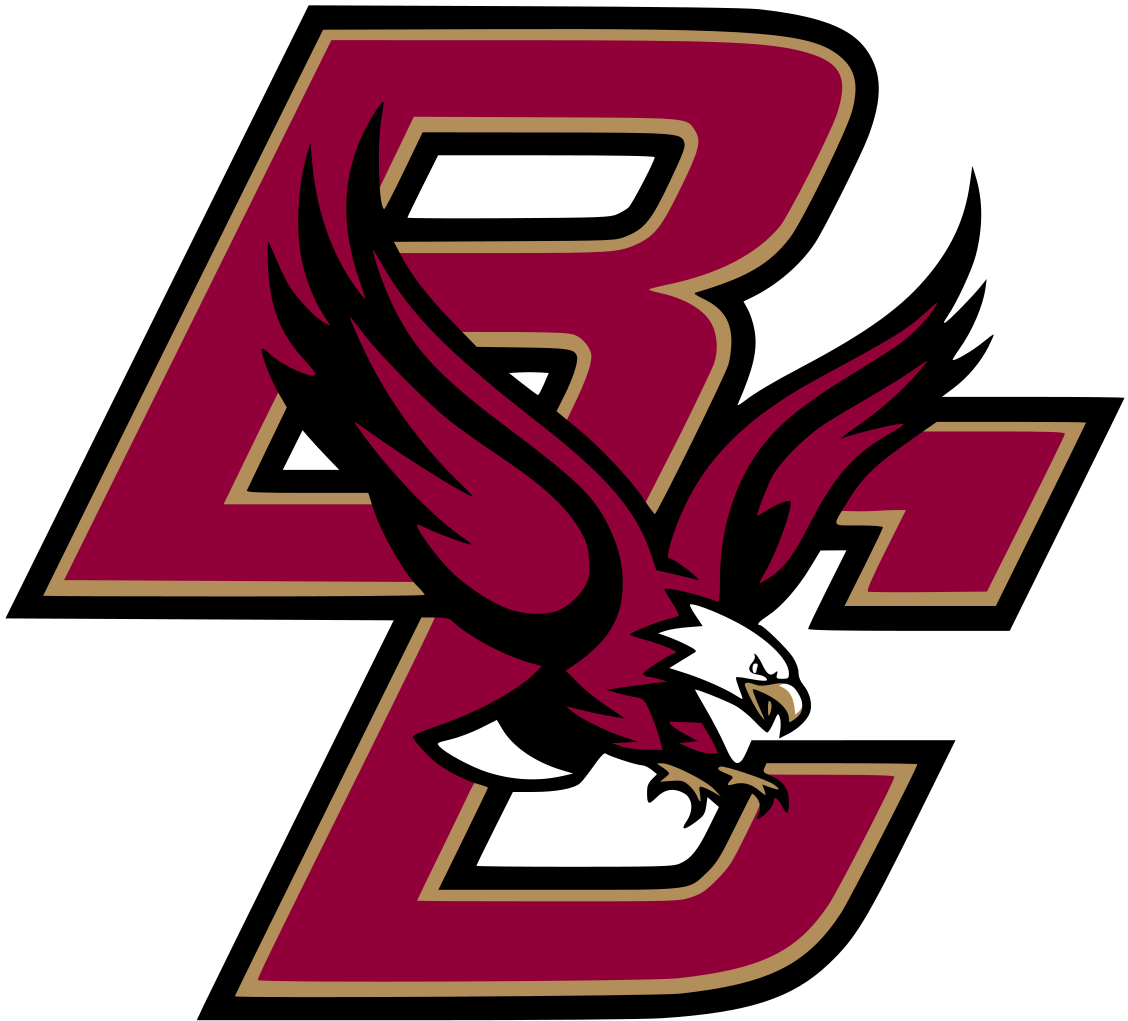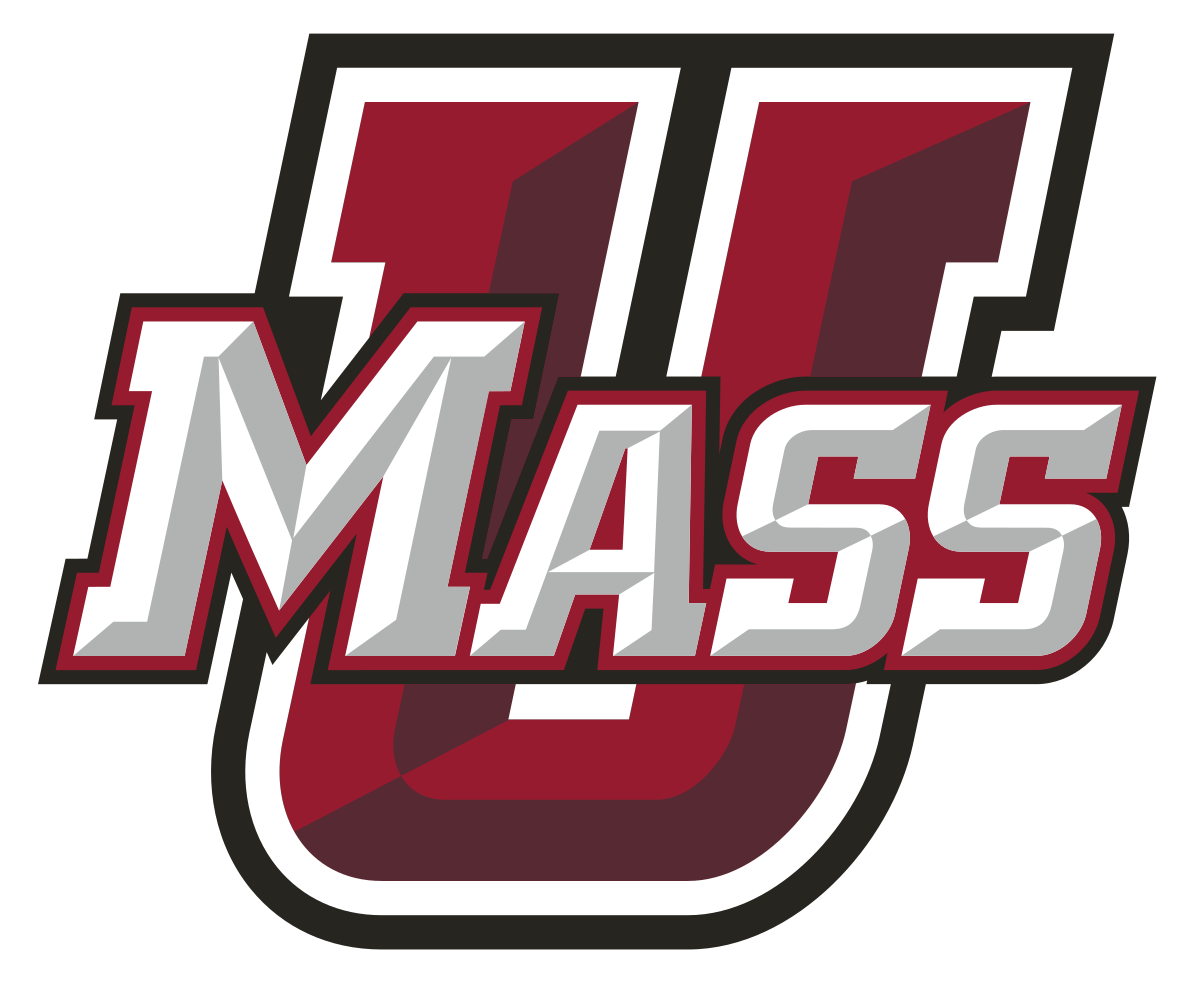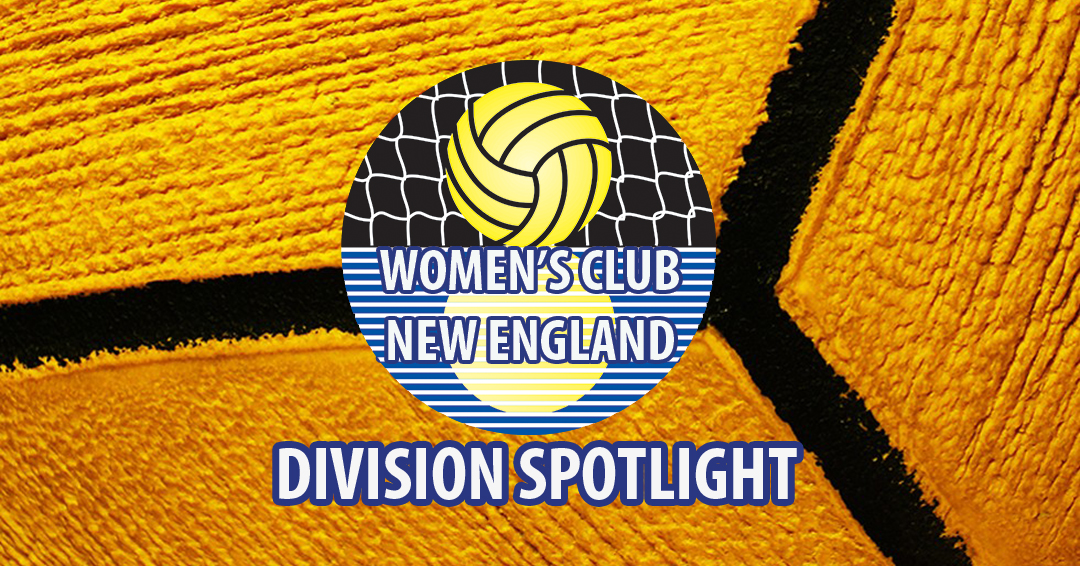BRIDGEPORT, Pa. — The American Water Polo spotlight on the Collegiate Water Polo Association (CWPA) Women’s Collegiate Club divisions moves up the East Coast from the Mid-Atlantic Division to the New England Division of Boston College, Boston University, Dartmouth College, Northeastern University, the University of Massachusetts, Wesleyan University and Williams College this week.
HISTORY: Founded in 2001, the New England Division has been dominated by four teams with Dartmouth (2002, 2003, 2004, 2005, 2007, 2009, 2011, 2012, 2014, 2015, 2017) and Boston College (2010, 2018, 2019) along with former group members Middlebury College (2008, 2013, 2016) and Yale University (2001, 2006) combining for all 19 previous championships.
Overall, eight teams have played for the division title with Yale (2003, 2004, 2005), Boston University (2009, 2016, 2018, 2019), Boston College (2011), Williams College (2012) and Wesleyan University (2017) joining former New England/current North Atlantic Division members the Massachusetts Institute of Technology (2001, 2002) and Middlebury (2006, 2007, 2014, 2015) in posting runner-up marks.
On the National Collegiate Club Championship stage, Dartmouth has placed second twice (2004, 2005) as the Big Green join California Polytechnic (2017, 2018) – the team that defeated them in back-to-back title tilts – as the only programs to claim consecutive runner-up finishes.
New England Division Champion/Runner-Up
- 2001 – Yale University / MIT
- 2002 – Dartmouth College / MIT
- 2003 – Dartmouth College / Yale University
- 2004 – Dartmouth College / Yale University
- 2005 – Dartmouth College /Yale University
- 2006 – Yale University / Middlebury College
- 2007 – Dartmouth College / Middlebury College
- 2008 – Middlebury College / Dartmouth College
- 2009 – Dartmouth College / Boston University
- 2010 – Boston College / Dartmouth College
- 2011 – Dartmouth College / Boston College
- 2012 – Dartmouth College / Williams College
- 2013 – Middlebury College / Dartmouth College
- 2014 – Dartmouth College / Middlebury College
- 2015 – Dartmouth College / Middlebury College
- 2016 – Middlebury College / Boston University
- 2017 – Dartmouth College / Wesleyan University
- 2018 – Boston College / Boston University
- 2019 – Boston College / Boston University
National Collegiate Club Champion/Runner-Up
- 2004 – California Polytechnic State University / Dartmouth College
- 2005 – California Polytechnic State University / Dartmouth College
THE TEAMS: The New England Division is comprised of schools from three New England states – Connecticut (Wesleyan), Massachusetts (Boston College, Boston University, Williams, UMass, Northeastern), New Hampshire (Dartmouth) – with only member institutions in the states of Rhode Island, Vermont and Maine keeping the group from encompassing the entire geographic region. The North Atlantic Division of MIT, Tufts University and Wellesley (Massachusetts); Yale and the United States Coast Guard Academy (Connecticut); Middlebury (Vermont); along with Bates College and Bowdoin College (Maine) accounts for the remaining New England states with the exception of Rhode Island as Brown University, the University of Rhode Island, Rhode Island College, Salve Regina University, the Rhode Island School of Design, Johnson & Wales University, Bryant University and Roger Williams University do not currently sponsor a women’s club team in the Collegiate Water Polo Association (CWPA).
 Boston College
Boston College
The three-time (2010, 2018, 2019) and two-time defending New England Division Champion Eagles of Boston College have appeared in the division title game four times with a runner-up finish in 2011. In addition, the team holds a pair of championships in the North Atlantic Division (2008, 2009) along with a runner-up mark (2007) from the program’s time prior to joining the New England Division.
Having fun before, during and after each game is a staple of the Boston College program.
A BC player notes, “I think something unique about our team is that before every game, without fail we have a dance party/dance-off. It really helps to loosen us up and you can’t help but smile as you’re going into your next game. Plus its also a great way to lift spirits and listen to some music to pump everyone up! The team breakfasts or dinners at different teammates’ houses is always a bonding experience and a great way to just spend time with each other out of the pool.”
The Eagles have a new home due to the opening of the Margot Connell Recreation Center.
“We just got a new pool, so before this year we were stuck with a diving well and one goal.”
“Coming to the East Coast to play water polo, I was unsure of my expectations. When I tried out for the team at BC, my expectations were surpassed. Everyone on the team is so passionate about the sport and encourages each individual player to thrive in and out of the pool. During my freshman year I joined with a bunch of amazing girls, and even a teammate who is from the same Hawaiian island as me. I was a little intimidated by how close everyone was, but they were instantly welcoming and I would always look forward to practice as one of my favorite parts of the day.”
Players at Boston College are comprised of athletes will all levels of skill and experience.
“BCWCWP was one of the best experiences of my college career. The program embraced me as a freshman ex-swimmer who had never played water polo before and taught me everything I know about the sport. During my time on the team, our practices were late on weekday nights; I was often extremely tired and not excited about jumping in the pool. Once we started, however, the following two hours were almost always my favorite part of my day. The vibrancy, fun, and universal support on our team brought so much light and fun to the sport and to my entire college career. I am so grateful for the opportunity to be on our team, and to each and every one of my teammates that make our program great — both in and out of the water.”
“Playing at BC is unlike any of my other experiences playing water polo in HS. It’s a community of role models I have found within the school that has served to guide me these past two years. It’s fun, it’s competitive but it is not all-consuming so it keeps the passion of the sport alive without burning people out. Our program is unique because of how spirited and close the team is there aren’t necessarily groups and divides among the team which I really like.”
The Eagles have several long running rivalries – especially versus Dartmouth College and crosstown nemesis Boston University. Historically, Boston College has faced Dartmouth twice for the division title (2010, 2011) and clashed with Boston University in both 2018 and 2019 for the New England Division crown.
“The program that I enjoy playing the most would have to be Dartmouth or BU. Dartmouth has players with some awesome speed so the tempo of the games is always fun because everything is quick! BU is always fun because of the school rivalry and when playing against BU and friends and family come to watch, the pool is usually a bit louder and excited.
Thanks to the program’s back-to-back division titles in 2018 and 2019, the Eagles eye bigger goals in the program’s future.
“I think the goal moving forward would always be to aim to win the National Collegiate Club Championship. As a team, everyone is incredible about aiming to meet and put in the hours to achieve these higher goals. But I also think something that makes our program different is at the beginning of each season we write down what we also want our personal goals to be. These personal goals could be anywhere from trying to talk more in the pool to developing a better shot. What’s most important at the end of the season at our banquet we go over these goals and talk about our best achievements and how we have grown as a team and a player. To me it’s all about the development of a cohesive team and unit!”
Boston College has a tradition of excellence thanks in part to the level of talent the school attracts:
- Eliza Gross ’17, All America Honorable Mention 2017; All-Conference First Team 2017, Second Team 2015 & 2016
- Heather Clark ’19, All-America Second Team 2019, Honorable Mention 2017 & 2018; All-Conference MVP 2018 & 2019, First Team 2016 & 2017
- Elizabeth Judge ’20, All-America Honorable Mention 2019; All-Conference First Team 2018 & 2019, Second Team 2017
- Annie Ward ’21, All-Conference First Team 2018 & 2019
A private Jesuit university in Chestnut Hill, Mass., Boston College was founded in 1863. The school has more than 9,300 full-time undergraduates and nearly 5,000 graduate students. Its main campus is a historic district and features some of the earliest examples of collegiate gothic architecture in North America.
Boston College offers bachelor’s degrees, master’s degrees, and doctoral degrees through its eight colleges and schools: Morrissey College of Arts & Sciences, Carroll School of Management, Lynch School of Education and Human Development, Connell School of Nursing, Graduate School of Social Work, Boston College Law School, Boston College School of Theology and Ministry, Woods College of Advancing Studies.
For the Class of 2023, Boston College received 35,500 applications, of which it admitted 9,500 (27%). The accepted class includes students from 50 states, Puerto Rico, the District of Columbia, and over 70 foreign countries; likewise, the Class of 2022 currently includes students from 46 states and 40 foreign countries.
For more information on the Boston College women’s collegiate club team, contact Hannah Grotzinger (hannahgrotzinger@gmail.com).
- Facebook (@bcwwp)
- Instagram (@bcwomenswaterpolo)
- Twitter (@BCWWaterPolo)
- Website (https://bcwomenswaterpolo.weebly.com/)
Boston University
A four-time New England Division (2009, 2016, 2018, 2019) and North Atlantic Division (2005, 2006, 2013, 2014) runner-up along with the 2015 North Atlantic Division Champion, the Terriers of Boston University have been the most successful program in the over the past five years with four title game appearances.
A private research university in Boston, Mass., the university offers bachelor’s degrees, master’s degrees, doctorates and medical, dental, business and law degrees through 18 schools and colleges on two urban campuses. The main campus is situated along the Charles River in Boston’s Fenway-Kenmore and Allston neighborhoods, while the Boston University Medical Campus is located in Boston’s South End neighborhood.
Among its alumni and current or past faculty, the university counts eight Nobel Laureates, 23 Pulitzer Prize winners, 10 Rhodes Scholars, six Marshall Scholars, 48 Sloan Fellows, nine Academy Award winners, and several Emmy and Tony Award winners. BU also has MacArthur, Fulbright, Truman and Guggenheim Fellowship holders as well as American Academy of Arts and Sciences and National Academy of Sciences members among its past and present graduates and faculty. The school was the site of history in 1876 as professor Alexander Graham Bell invented the telephone in a BU lab.
Based on currently enrolled student responses within the university student database the population of the school is 50.6% white, 14% Asian, 11.6% international students, 8.6% Hispanic, and 3.2% black. Among international students, 39% are pursuing undergraduate degrees, 37% are pursuing graduate degrees, and 23% are enrolled in other programs. BU also has the second highest number of Jewish students of any private school (after New York University) in the country with between 3,000 and 4,000.
For more information on the Boston University women’s collegiate club team, contact either Madie Janik (mejanik@bu.edu) or the team’s general email account (bugirlswaterpolo@gmail.com).
- Facebook (@BUWWaPo)
- Website (http://blogs.bu.edu/h2opolo/)
 Dartmouth College
Dartmouth College
The most successful team in the history of the women’s New England Division with 11 titles (2002, 2003, 2004, 2005, 2007, 2009, 2011, 2012, 2014, 2015, 2017) and three runner-up finishes (2008, 2010, 2013), Dartmouth College has appeared in 14 of the previously contested 19 division championship games.
A private Ivy League research university in Hanover, N.H., Dartmouth was established in 1769 by Eleazar Wheelock It is the ninth-oldest institution of higher education in the United States and one of the nine colonial colleges chartered before the American Revolution.
Although founded as a school to educate Native Americans in Christian theology and the English way of life, Dartmouth now provides undergraduate instruction in 40 academic departments and interdisciplinary programs including 57 majors in the humanities, social sciences, natural sciences, and engineering, and enables students to design specialized concentrations or engage in dual degree programs. The university is comprised of five constituent schools: the original undergraduate college, the Geisel School of Medicine, the Thayer School of Engineering, the Tuck School of Business and the Guarini School of Graduate and Advanced Studies. The university also has affiliations with the Dartmouth–Hitchcock Medical Center, the Rockefeller Institute for Public Policy, and the Hopkins Center for the Arts.
The university functions on a quarter system, operating year-round on four 10-week academic terms. With a student enrollment of about 6,600, Dartmouth is the smallest university among Ivy League institutions.
For the freshman class entering Fall 2020, Dartmouth received 21,394 applications of which 1,881 were accepted for an 8.8% admissions rate. Of those admitted students who reported class rank, 96% ranked in the top decile of their class.
Dartmouth guarantees to meet 100% of the demonstrated need of every admitted student who applies for financial aid at the time of admission. Dartmouth practices need-blind admissions for all applicants who are U.S. citizens, permanent residents and undocumented students in the U.S. These applicants are admitted to the college without regard to their financial circumstances. For international students, financial need is taken into consideration as one of many factors at the time of admission. At Dartmouth, free tuition is provided for students from families with total incomes of $100,000 or less and possessing typical assets.
For more information on the Dartmouth women’s collegiate club team, contact either Maggie Flaherty (mcf.21@dartmouth.edu), Emily Zurcher (emily.j.zurcher.21@dartmouth.edu) or head coach Jim Wilson (A.James.Wilson@dartmouth.edu).
- Instagram (@dartmouthwaterpolo)
- Twitter (@DartmouthPolo)
- Website (https://sites.dartmouth.edu/polowomen/)
Northeastern University
One of three universities in the New England Division located in the Boston, Mass., metro area, Northeastern University was established in 1898. The university offers undergraduate and graduate programs on its main campus in Boston. The university has satellite campuses in Charlotte, N.C.; Seattle, Wash.; San Jose, Calif.; Toronto, Vancouver and Portland, Maine that exclusively offer graduate degrees. In 2019, Northeastern purchased the New College of the Humanities in London, England. The university’s enrollment is approximately 18,000 undergraduate students and 8,000 graduate students.
The Huskies academic program is different than the norm as Northeastern features a cooperative education program, more commonly known as “co-op”, that integrates classroom study with professional experience and contains over 3,100 partners across all seven continents. The program has been a key part of Northeastern’s curriculum of experiential learning for more than a hundred years and is one of the largest co-op/internship programs in the world. While it is not required for students of all academic disciplines to participate in the co-op program, participation is nearly universal among undergraduate students as it helps distinguish their university experience from that of other universities. Northeastern also has a comprehensive study abroad program that spans more than 170 universities and colleges.
Northeastern offers undergraduate majors in 65 departments. At the graduate level, there are about 125 programs. Founded in 2009, IDEA is Northeastern University’s student-led Venture Accelerator, which provides entrepreneurs, including students, faculty, and alumni in the Northeastern community with the necessary support and educational experience towards developing a business from core concept to launch.
For more information on the Northeastern women’s collegiate club team, contact Glenn Billman (nuwomenswaterpolo@gmail.com).
- Facebook (@NUWPP)
- Instagram (@nuwomenswaterpolo)
- Website (https://web.northeastern.edu/clubsports/water-polo-w/)
 University of Massachusetts
University of Massachusetts
Located in Amherst, Mass., the University of Massachusetts was established in 1863 as the Massachusetts Agricultural College. However, the school has grown over the past 157 years to now offer a variety of academic and co-curricular options. The lone public university in the New England Division, the school has 21,969 undergraduates and offers 109 bachelor’s degree programs. Boasting a student-to-faculty ratio of 18:1 with 81% of classes comprised of fewer than 40 students, the school is part of the Five Colleges consortium, with Smith College, Mount Holyoke College, Hampshire College and Amherst Colleges. Students can take classes on any of these campuses and participate in all co-curricular and cultural activities.
Similar to other collegiate club programs, the UMass women’s team is entirely student run. The team’s coaches, and executive board which runs the bureaucratic side of the program, is composed of students that are on the team.
Many of the team’s players did not play water polo before arriving at Massachusetts. Both the mens and women’s teams at UMass practice together which creates a feeling of being one big family. The squads include masters and exchange students from a variety of backgrounds.
The team is led by senior Sashi Weerawarna. who assumed coaching duties as a sophomore.
For more information on the Massachusetts women’s collegiate club team, contact the team’s general email account (waterpolo@umass.edu).
- Facebook (@UMassClubWaterPolo)
- Instagram (@umassclubwaterpolo)
- Website (https://umassamherst.campuslabs.com/engage/organization/waterpoloclub)
Williams College
The 2012 New England Division runner-up, Williams College is located in Williamstown, located in the Berkshires in rural northwestern Massachusetts. Established in 1793 with funds from the estate of Ephraim Williams, a colonist from the Province of Massachusetts Bay who was killed in the French and Indian War in 1755, the school it is the second-oldest institution of higher education in the Commonwealth of Massachusetts. Although the bequest from the estate of Ephraim Williams intended to establish a “free school”, the college quickly outgrew its initial ambitions and positioned itself as a “Western counterpart” to Yale University and Harvard University.
The campus contains more than 100 academic, athletic and residential buildings with a student-to-faculty ratio of 7:1. As of 2019, the school has an enrollment of 2,078 undergraduate students and 56 graduate students.
Following a liberal arts curriculum, Williams College provides undergraduate instruction in 25 academic departments and interdisciplinary programs including 36 majors in the humanities, arts, social sciences and natural sciences. Williams offers an almost entirely undergraduate instruction, as there are two graduate programs in development economics and art history. Undergraduate admission is highly selective, with an acceptance rate of 12% for the Class of 2023.
For over the past seventeen consecutive years (2002-2019), Williams has ranked 1st in U.S. News & World Report’s rankings of Best National Colleges, and has held high-ranking positions in other institutional rankings including Forbes, Wall Street Journal, and College Consensus.
Many prominent alumni have attended the College, including nine Pulitzer Prize winners, a Nobel Prize Laureate, a Fields medalist, three chairmen of the U.S. Securities and Exchange Commission, 10 billionaire alumni, 71 members of the United States Congress, 22 U.S. Governors, four U.S. Cabinet secretaries, an Associate Justice of the Supreme Court, a President of the United States, three prime ministers, CEOs and founders of Fortune 500 companies, high-ranking U.S. diplomats, foreign central bankers, scholars in academia, literary and media figures, numerous Emmy, Oscar, and Grammy award winners and professional athletes.
For more information on the Williams women’s collegiate club team, contact either Sophia Sonnenfeldt (srs2@williams.edu), Liz Ferguson (laf2@williams.edu) or coach RB Smith (rbs2@williams.edu).
- Website (https://williamswaterpolo.wordpress.com/)
 Wesleyan University
Wesleyan University
The 2017 New England Division Championship runner-up, Wesleyan University is located in Middletown, Conn. Founded in 1831 as a men’s college under the auspices of the Methodist Episcopal Church, the now-secular university became fully co-educational in 1970 after accepting female applicants from 1872 to 1909. Notably, the college’s reversal on accepting women led to the establishment of Connecticut College in 1912.
Wesleyan has produced distinguished alumni in the arts and sciences, literature, politics and government, business, journalism, and academia. Its alumni include 13 Pulitzer Prize winners such as playwright and Hamilton creator Lin-Manuel Miranda, Super Bowl Champion head coach Bill Belichik, 14 Rhodes scholars, three Truman scholars, three Guggenheim fellows, seven MacArthur fellows, and 156 Fulbright scholars. Additionally, four Nobel laureates have been associated with the university. Other prominent alumni include 34 members of the United States Congress, 16 presidential cabinet members, 11 governors, six directors and heads of U.S. federal agencies, several CEOs and founders of Fortune 500 companies, and two attorneys general of the United States.
Wesleyan’s 46 undergraduate academic departments offer over 900 courses each semester and more than 900 individual tutorials. Wesleyan also offers 13 interdisciplinary programs and nine Academic Centers. Undergraduates receive the Bachelor of Arts in one (or more) of 45 major concentrations. As many as a third of these majors are interdisciplinary in structure. Double majors are popular and up to 40% of Wesleyan’s graduates are double majors. Students may triple major as well. In addition, Wesleyan began offering minors in February 2012 and at present offers eleven minors with more under consideration.
Wesleyan offers 3–2 programs in engineering with the California Institute of Technology and Columbia University’s School of Engineering. These programs allow undergraduates to receive degrees in five years from both Wesleyan (B.A.) and Caltech or Columbia (B.Sc., Engineering). Additionally, Wesleyan offers a BA/MA Program in the sciences leading to a bachelor’s degree in the fourth year and a master’s degree in the fifth year. Tuition for the fifth year of the master’s degree is waived. Undergraduates can pursue studies in pre-medicine, pre-law, and pre-business through any major. Most classes at Wesleyan are small; the predominant class size for undergraduates is 10–19 students, and the student to faculty ratio is eight-to-one.
Wesleyan does not require undergraduates to take prescribed courses. Freshmen are offered First Year Initiative seminars, which are designed to prepare them for upper level courses by emphasizing writing, analysis, discussion, and critical thinking. Undergraduates are encouraged in the first two years of study to take a minimum of two courses from two different departments in each of three areas: natural sciences and mathematics, humanities and the arts, and social and behavioral sciences. In the second two years, undergraduates are expected to take one course in each of these three areas. Fulfillment of the General Education Expectations in conjunction with co-curricular activities provides simultaneous acquisition of the ten essential capabilities.
For the Class of 2023 (enrolling Fall 2019), Wesleyan received 13,264 applications and accepted 2,186 (16.5%), with 771 enrolling. Beginning with the 2014–2015 admissions cycle, Wesleyan no longer requires students from the United States or Canada to submit SAT or ACT scores as part of their applications.
For more information on the Wesleyan women’s collegiate club team, contact either Dominique Monserrat (dmonserrat@wesleyan.edu) or Fallon Konow (fkonow@wesleyan.edu).
- Instagram (@wespolo)
- Website (https://athletics.wesleyan.edu/information/club/index)

